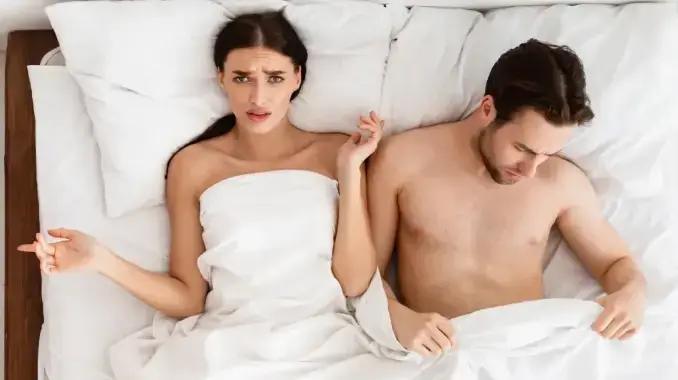Experts say that it is normal for worries and fears to surface at night, whether you are reviewing the list of tasks for the next day or if you are left regretting past events.
According to a survey of 3,192 U.S. adults in October 2022, 34% of people interviewed said they had felt anxious or nervous in the past month. And 32% said stress had led to changes in their sleeping habits, including difficulty falling asleep.
Vicious circle
When anxiety wakes you up, not only do you miss out on the health benefits of sleep, but you can trigger a vicious cycle of sleep deprivation and increased anxiety that can be difficult to break.
"Sleep loss is often a precursor to anxiety disorders, and anxiety leads to sleep loss," says Dr. Sarah Chellappa, a neuroscientist at the University of Cologne, Germany.
Anxiety can strike at any time, but it's likely to be most intense at bedtime, adds Candice Alfano, director of the Houston Sleep and Anxiety Center at the University of Houston, Texas.
"Most of us are incredibly busy during waking hours," says Dr. Alfano. "But at night, when we're lying in bed, there are few distractions from anxious thoughts."
Even worse, sleep loss has been shown to elicit more anxious thinking. In a 2019 investigation of 13 studies published in the journal Sleep Medicine Reviews, researchers concluded that insomnia was a significant predictor of anxiety, among other mental health conditions.
Because better sleep helps reduce anxiety, good general sleep hygiene practices — such as going to bed and getting up at the same time every day and avoiding screens and monitors before bed — can help, Alfano says.
At night there are fewer distractions that take us away from anxious thoughts. Photo Shutterstock.
Tips to lower anxiety before bed
The following tips can help you reduce anxiety-provoking thoughts at bedtime.
✓Set a limit for caffeine. The time that caffeine is halved in the body is about five hours, which means that if you drink a cup of 200 cm3 coffee at 4 in the afternoon, at 9 you will still have 50% of the caffeine from that cup in the body. Consider drinking your last cup of coffee at least 10 hours before bedtime.
✓Put your concerns in writing. If you tend to think too much at night, both Candice Alfano and Dr. Rafael Pelayo, professor of clinical psychiatry and behavioral sciences in sleep medicine at Stanford University and author of the book How to Sleep, recommend writing in a journal at the end of the day.
"Writing down competing thoughts and tasks within you can prevent thoughts from reappearing later," Pelayo explains.
✓Imagine something that appeals to you. "If you go to bed thinking, 'I hate my job, I hate my commute,' of course you're not going to sleep well." But if you get something desirable that you can think about for the morning — a good breakfast, a walk — you're going to have positive thoughts that can replace some of the more negative ones that keep you awake, he says.
Incorporating some of these suggestions can help calm your bedtime thoughts, experts say, but if you constantly wake up tired, ask your doctor for a referral to a sleep medicine specialist.
Pelayo finds words of comfort: "I want people to know that they don't have to feel that way."
©The New York Times
Translation: Roman Garcia Azcárate
***
Do you want to continue reading about sleep and tips to sleep better?
These notes may interest you:
➪How to control the negative thoughts that assault us at night and do not let us sleep
➪Is it possible to sleep well after 60?
➪Poor sleep can harm the heart and brain: 12 tips to rest better
➪Five sleep habits that indicate if you sleep well and what their benefits are
➪To sleep better: how to apply the technique of letting go and a guided meditation step by step
***
➪ Do you have any questions about health and wellness that you would like us to address in section notes? Enter the Clarín Help Center by clicking here, enter Message to the newsroom and then to Questions to Good Life. Write us your inquiry and send. Ready!
See also








